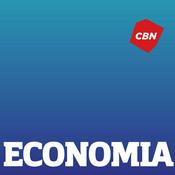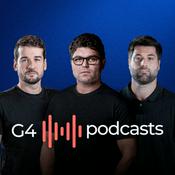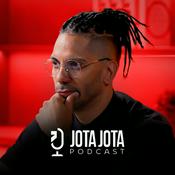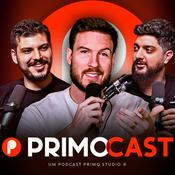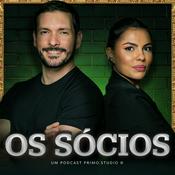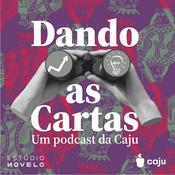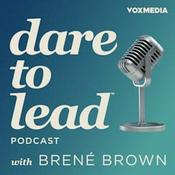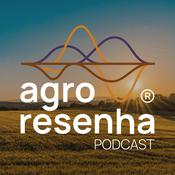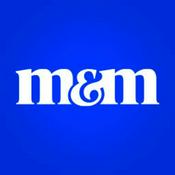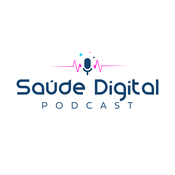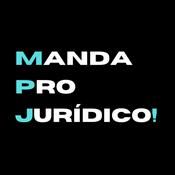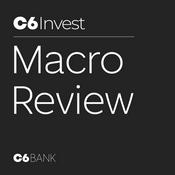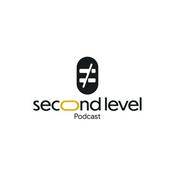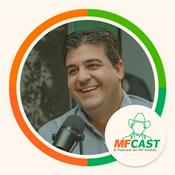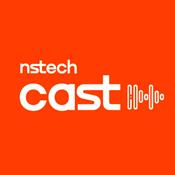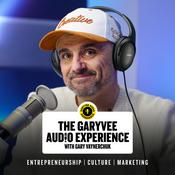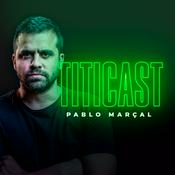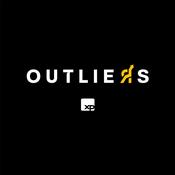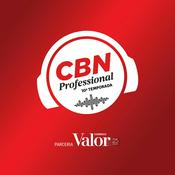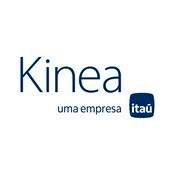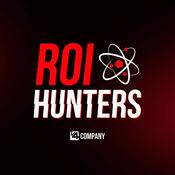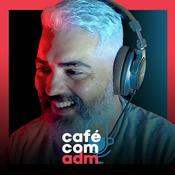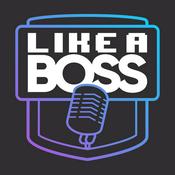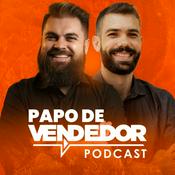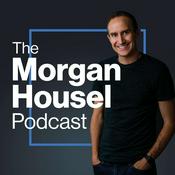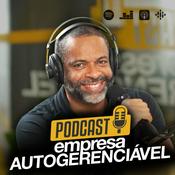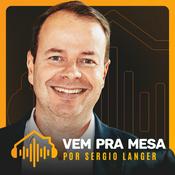198 episódios

Episode 198 - Scaling Globally with Family and Values — A Conversation with Pranav Dalal, Founder & CEO of Office Beacon
18/11/2025 | 51min
Pranav Dalal is the visionary Founder and CEO of Office Beacon, a global outsourcing powerhouse with over 5,500 employees. Launching the business in 2000 after the dot-com crash, Pranav has expanded operations from India to the Philippines, Mexico, and South Africa, providing over 150 different services to clients worldwide. As a single father, he is actively building a multi-generational family business, with his children joining the ranks to learn the industry from the ground up. Pranav is also a forward-thinker who leverages unique partnerships with the NFL and SoFi Stadium to drive business growth.SHOW SUMMARYIn this episode, host Jonathan Goldhill sits down with Pranav Dalal to discuss his 25-year journey of building a truly global enterprise. Pranav shares the origin story of shifting from the tech sector to B2B services and how he strategically scaled Office Beacon across multiple continents. We explore how he balances running a massive remote organization using systems like EOS and the "generational compact" he has established with his children. Pranav also offers fascinating insights into his unique sports marketing partnerships, his aggressive adoption of AI to disrupt his own business model, and the ancestral values that guide his leadership.KEY TAKEAWAYSThe Generational Compact: Pranav built Office Beacon with the specific intent of creating a multi-generational legacy. His children joined the business not through nepotism, but by starting at entry-level positions to learn humility and hard work.Scaling with EOS: Managing 5,500 employees remotely requires discipline. Pranav utilizes the Entrepreneurial Operating System (EOS) five levels deep to ensure core values and goals are cascaded effectively across global teams.Innovative Partnerships: Moving beyond traditional marketing, Office Beacon holds exclusive partnerships with SoFi Stadium and the NFL Alumni Association, using stadium suites for daily business networking rather than just game-day entertainment.Disrupt or Be Disrupted: Pranav views himself as the "Chief Disruption Officer." He is heavily investing in AI education and implementation for 2026, believing that if he doesn't disrupt his own business model, a competitor will.Trust But Verify: A core leadership lesson Pranav instills in his children and team is the concept of "trust but verify"—maintaining faith in people while ensuring details and execution are validated to prevent costly mistakes.Ancestral DNA: Pranav reconnected with his heritage, discovering that his surname "Dalal" means "broker" in Persian/Hindi, which reinforced his belief that business and entrepreneurship are embedded in his family's DNA.QUOTES"My whole goal was to create a multi-generational family business.""If we're not disrupting ourselves, someone's going to disrupt you.""I realized that it was a very doable thing... that there are these family legacies out there in business that go back hundreds of years.""They fail, feel a sense of ownership even though I'm the owner... their mindset of being accountable is incredible.""I’m in the people business, and I should be the first one to say, 'Wow, I’m scared of AI,' but I’m embracing it a thousand percent."Connect and learn more about Pranav Dalal and Office Beacon: Pranav Dalal’s LinkedIn: https://www.linkedin.com/in/pranavdalal/Office Beacon Website: https://www.officebeacon.com/ Email for inquiries: [email protected] you enjoyed today’s episode, please subscribe, review, and share with a friend who would benefit from the message. If you’re interested in picking up a copy of Jonathan Goldhill’s book, Disruptive Successor, go to the website at www.DisruptiveSuccessor.com Hosted by Simplecast, an AdsWizz company. See pcm.adswizz.com for information about our collection and use of personal data for advertising.

Episode 197 - Disrupting the Portable Restroom Industry: Innovation, Leadership & Family Values with Grant & Erin Stahla
24/9/2025 | 43min
Grant and Erin Stahla are the inspiring husband-and-wife co-founders of Stahla Services, a premium restroom and shower trailer rental company. Starting with a single trailer after college, they have disrupted a traditional industry by providing hospitality-level service and a product often described as a "hotel bathroom on wheels." Guided by their values and a passion for entrepreneurship, they've grown their family-run business across multiple states. The Stahlas are also the creators of Stahla Leads, an innovative online marketplace designed to help other vendors in the sanitation space grow their businesses by connecting them with qualified customers.SHOW SUMMARYIn this episode, host Jonathan Goldhill chats with Grant and Erin Stahla about their incredible journey of transforming the portable sanitation industry. Grant shares the origin story of starting the business right out of college and how he and Erin joined forces to scale it with a commitment to quality and service. We explore how they innovated a commodity product into a premium experience, the systems they've used to scale effectively, and the genesis of their second company, Stahla Leads. Grant and Erin also offer an open and honest look at the dynamics of running a business as a married couple and how their faith serves as the foundational core for their leadership, culture, and life balance.KEY TAKEAWAYSInnovating a Commodity: The Stahlas elevated the standard porta-potty into a premium experience with amenities like flushing toilets, running hot water, A/C, heating, and Bluetooth sound systems, effectively creating a new market category.Values-Driven Leadership: Their faith is the "core of everything." They strive to run their business "like Jesus would," which informs everything from their company culture and customer service to maintaining perspective and life balance.The Dynamics of a Couple in Business: Erin shares that success as a married couple in business requires acknowledging the ups and downs, communicating openly, and finding a flexible balance that works for them, rather than enforcing rigid rules.From Internal Problem to New Venture: After spending over a million dollars on Google Ads and finding most leads were outside their service area, they created Stahla Leads—a marketplace to sell those leads to other vendors, turning a marketing challenge into a new revenue stream.Building to Sell, But Inspired to Hold: While they use the "build to sell" framework to ensure the business is systemized and valuable, their true inspiration comes from legacy companies like Chick-fil-A, focusing on long-term growth and value creation over decades.Scaling with Intention: The Stahla have intentionally scaled using systems like the Entrepreneurial Operating System (EOS), software like HubSpot and Smartsheets, and a commitment to embedding their core values across all locations to maintain quality and culture.QUOTES"We really want to be that rising tide that lifts all ships within our industry.""We want to do this business like Jesus would. So we want to own it like Jesus would and just manage like Jesus would.""Anything that you do, there's going to be some low moments and some hard things that you're gonna have to talk through, whether that's like purely a coworker or a coworker who happens to be your spouse.""If we're gonna have a business, we wanna do it right and we wanna keep building it.""Such a basic thing. But also it, it's so different than the standard plastic porta-potty."Connect and learn more about Grant & Erin Stahla:Grant Stahla's LinkedIn: https://www.linkedin.com/in/grant-stahla/Erin Stahla's LinkedIn: https://www.linkedin.com/in/erinstahla/If you enjoyed today’s episode, please subscribe, review, and share with a friend who would benefit from the message. If you’re interested in picking up a copy of Jonathan Goldhill’s book, Disruptive Successor, go to the website at www.DisruptiveSuccessor.com Hosted by Simplecast, an AdsWizz company. See pcm.adswizz.com for information about our collection and use of personal data for advertising.

Episode 196 - Preserving a Legacy, Planting New Seeds: The Hubbard Peanut Story with Marshall Rabil
15/7/2025 | 54min
Marshall Rabil is the third-generation President and CEO of Hubbard Peanut Company, the country's oldest specialty peanut brand, famously known as "Hubs." Founded by his grandparents in 1954 in Sedley, Virginia, Hubs is a household name celebrated for its super extra-large Virginia peanuts. Before taking the helm, Marshall cultivated a global perspective, working in sustainable development and education in Japan and around the world. He later gained invaluable industry experience as a specialty food buyer at Whole Foods, inspired by the principles of Conscious Capitalism. In 2016, Marshall returned to his roots, bringing a vision to blend the company's rich tradition with modern innovation, community engagement, and long-term growth.SHOW SUMMARYIn this episode, host Jonathan Goldhill sits down with Marshall Rabil to explore the journey of leading a 70-year-old family legacy into the future. Marshall shares how his experiences abroad, from Japanese villages to international development projects, shaped his desire to use the family business as a catalyst for positive change in his own rural Virginia community. We dive into the nuts and bolts of this transformation, from turning an old grocery store into a vibrant community hub to competing against private equity-backed giants. Marshall offers a candid look at the delicate balancing act of honoring his grandparents' legacy while implementing new technology, marketing strategies, and, most importantly, navigating the complex dynamics of family ownership and succession.KEY TAKEAWAYSBusiness as a Community Catalyst: Marshall is using the business as a force for good, transforming an old grocery store into "The Hubs Vine," a community event space, and forging deep partnerships with the local food bank through initiatives like the "Homegrown Harvest" festival.The Value of Outside Experience: The Rabil family mantra was to "go and work for someone else first." Marshall’s time in international education and at Whole Foods provided him with a unique perspective that has been crucial for innovating within the family business.Navigating the Private Equity Wave: Instead of selling to private equity firms that are acquiring competitors, the Rabil family chose to reinvest in their business. Hubs differentiates itself by focusing on its premium quality, its authentic story, and strategic partnerships with brands like Orvis.The Toughest Challenge is Family Alignment: Marshall reveals that the most critical and time-consuming challenge isn't operations or scaling, but getting the multi-generational family owners aligned on corporate governance, especially the buy-sell agreement.Modernizing a Legacy Brand: Marshall is spearheading the adoption of new technologies, from a sophisticated Shopify Plus website and data analytics tools to exploring automation on the production line, ensuring the brand remains relevant.Patience in a Legacy Business: Leading a 70-year-old company requires patience. Marshall emphasizes the need to take a step back, understand different family perspectives, and accept that meaningful change takes time.QUOTES"I was really starting to think how can business, um, be a catalyst for change in our community?""I was always encouraged to go out and do something before you want to come back here. So that was always kind of our family mantra was, you need to go and work for someone else first.""I think our value has multiplied because of some of those efforts. But it required a lot of work.""Of the seven things that you mentioned, that [family alignment on corporate governance] is the one that is taking the most time and attention... because you have to get the family on board.""I have to remind myself too, you know, take a step back. You'll get there. I like things to happen a little quicker than they do sometimes."Connect and learn more about Marshall Rabil and Hubbard Peanut Company:LinkedIn: https://www.linkedin.com/in/marshall-rabil-83a24a15/Company LinkedIn: https://www.linkedin.com/company/hubbard-peanut-company-inc/If you enjoyed today’s episode, please subscribe, review, and share with a friend who would benefit from the message. If you’re interested in picking up a copy of Jonathan Goldhill’s book, Disruptive Successor, go to the website at www.DisruptiveSuccessor.com Hosted by Simplecast, an AdsWizz company. See pcm.adswizz.com for information about our collection and use of personal data for advertising.

Episode 195 - Disrupting the Green Narrative: Energy Lessons from Ronald Stein
01/7/2025 | 46min
Ronald Stein is a professional engineer, energy literacy advocate, and the Pulitzer Prize-nominated co-author of Clean Energy Exploitations. With decades of experience designing and building refineries for major corporations like Bechtel and Fluor, Ron possesses a deep, nuanced understanding of the energy sector. Thirty years ago, he and his wife, June, founded PTS Advance, a staffing and workforce solutions firm specializing in complex industries like energy and life sciences. After successfully growing the company, they transitioned ownership to their two sons 15 years ago. Now, Ron dedicates his time to educating policymakers, business leaders, and the public, serving as a columnist for America Out Loud News and an advisor to the Heartland Institute on energy policy.SHOW SUMMARYIn this eye-opening episode of the Disruptive Successor Podcast, host Jonathan Goldhill sits down with Ronald Stein to challenge everything you think you know about energy. Ron explains the dangerous lack of "energy literacy" plaguing our leaders and policies. He draws a critical distinction: renewables like wind and solar only generate electricity, whereas fossil fuels are the foundation for the petrochemicals that create over 6,000 essential products, from iPhones and medical devices to the very components of EVs and solar panels. The conversation delves into the successful generational transition of Ron's family business, PTS Advance, and unpacks the severe economic and national security risks of misguided energy policies, revealing the hidden truths behind the global push for a "green" transition.KEY TAKEAWAYS Energy vs. Electricity: A Critical Misunderstanding: Ron clarifies that "energy" and "electricity" are not interchangeable. Wind and solar generate electricity, but they cannot create the physical products derived from the petrochemicals in fossil fuels that our modern world is built on.Everything is Made from Oil: Our materialistic society, including "green" technologies like EVs, wind turbines, and solar panels, is fundamentally dependent on the 6,000+ products derived from oil. Getting rid of oil means getting rid of the building blocks of modern life.A Family Business Success Story: Ron shares how he and his wife built PTS Advance from the ground up, successfully transitioned it to their sons, and strategically hired a non-family CEO, leading to massive growth and an eventual acquisition.The Perils of Poor Policy: California's push to eliminate in-state oil production has ironically made the state over 70% dependent on foreign oil imports, creating a significant national security risk and driving up costs for consumers.The Hidden Costs of EVs: Transitioning to electric vehicles eliminates the gas tax revenue that maintains roads, while the heavier weight of EVs causes more road damage, creating a future funding crisis.The Unethical Side of "Clean" Energy: Ron argues that mandating EVs financially incentivizes the exploitation of labor (including child labor) and environmental degradation in countries like China and in Africa, where the raw materials for batteries are mined.The Nuclear Resurgence: As a reliable, emissions-free, and continuous power source, nuclear energy is gaining worldwide momentum as a practical solution for our electricity needs, requiring far less land and materials than wind and solar.QUOTES "Wind and solar only generates electricity. They make no powers, no insulation, no asphalt, et cetera, et cetera. Whereas oil, all the products we have today didn't exist 200 years ago.""If you get rid of oil, you get rid of electricity, you get rid of EVs. The EV is a hundred percent made with oil.""Instead of being 5% dependent on foreign imports for crude oil, we're now more than 70% dependent... And that is a national security risk for America.""My passion is to stimulate conversations about energy literacy because most of our policy makers are misunderstanding the word energy.""I think it's unethical and immoral to provide those financial incentives for those countries to continue to [exploit people and the environment].""There's a worldwide movement toward nuclear 'cause we want affordable, reliable, continuous electricity, also emissions free electricity and nuclear is providing that."Connect and learn more about Ronald Stein and his work:LinkedIn: https://www.linkedin.com/in/ronaldstein/Email: [email protected]: Clean Energy Exploitations on AmazonCompany: PTS Advance: https://www.linkedin.com/company/pts-advance/If you enjoyed today’s episode, please subscribe, review, and share with a friend who would benefit from the message. If you’re interested in picking up a copy of Jonathan Goldhill’s book, Disruptive Successor, go to the website at www.DisruptiveSuccessor.com Hosted by Simplecast, an AdsWizz company. See pcm.adswizz.com for information about our collection and use of personal data for advertising.

Episode 194 - Bagels, Bloodlines, and Business: Western Bagel’s Legacy with Jeff Ustin
19/6/2025 | 44min
Jeff Ustin is the Vice President of Western Bagel, the first bagel shop in Los Angeles. He helps carry on his great-grandfather’s 75-year legacy while leading the brand’s national and international expansion. Under his leadership, Western Bagel has become a West Coast staple, blending New York tradition with LA innovation. Carrying on a rich 75-year legacy, Jeff is the great-grandson of David Ustin, a union bagel baker from New York City who founded Western Bagel in 1947. Jeff grew up immersed in the business, learning every aspect from sweeping floors at 3 AM with his father, Steve, to managing retail stores. Under his leadership, Western Bagel continues to blend New York tradition with LA innovation, expanding its reach nationally and internationally while preserving its strong family values and commitment to employeeSHOW SUMMARYIn this episode of the Disruptive Successor Podcast, host Jonathan Goldhill talks with Jeff Ustin, Vice President of Western Bagel. Jeff shares the fascinating history of his family's 75-year-old bagel business, from its New York roots to becoming a West Coast staple. The conversation explores the unique challenges and triumphs of generational transitions, maintaining a strong company culture based on loyalty and respect, and the ongoing efforts to modernize and expand the brand in a competitive market. Jeff offers valuable insights into balancing tradition with innovation, adapting to consumer trends, and navigating market shifts like the COVID-19 pandemic, all while staying true to Western Bagel's core values.KEY TAKEAWAYSA Legacy Built on Hard Work and Family: Jeff highlights how Western Bagel's 75-year success is rooted in the tireless dedication of his great-grandfather and father, who instilled a strong work ethic and passion for the business from a young age.The Backbone of Employee Loyalty: The longevity and success of Western Bagel are largely attributed to their deep respect for employees, many of whom have been with the company for decades, fostered by an open-door policy and a family-like culture.Balancing Tradition with Innovation: Western Bagel masterfully combines its New York bagel heritage with an LA touch, creating a less dense bagel that appeals to the local market while continuously exploring new products and adapting to modern consumer preferences like high-protein options.Modernizing for the Next Generation: The company is actively investing in social media, hiring PR firms, and exploring new concepts to connect with younger customers and expand its brand presence, ensuring relevance in a constantly evolving market.Strategic Expansion in a Competitive Landscape: Jeff discusses the deliberate planning behind market expansion, emphasizing the need to "hit hard" when entering new areas and the constant evaluation of opportunities in wholesale, private label, and potential new factory locations.Lessons from Adversity: Navigating COVID-19: The pandemic, while challenging, pushed Western Bagel to adapt and grow, particularly in delivery services, leading to valuable operational improvements and a stronger, more resilient business.Sticking to Your Core and Giving Back: Jeff emphasizes the importance of focusing on what the company does best – making authentic bagels – and its unwavering commitment to community involvement and stewardship through charitable giving.QUOTES"You're only as good as your employees that you have. You need to be loyal to them. They're the backbone of your company.""If you don't change with the times, you're gonna fail.""You gotta know what you know and what you don't know... you gotta put that ego aside and, and trust people and learn.""We know we have the best bagel out there. We take pride in our bagel. We use the highest quality ingredient. I mean, it's a, it matters to us.""There's always something good that comes outta something horrific.""You gotta help those that need help... we believe that's our job as a, as a company, is to help those in need."Connect and learn more about Jeff Ustin and his company:Jeff Ustin's LinkedIn: https://www.linkedin.com/in/jeff-ustin-307a1710b/Western Bagel: https://westernbagel.com/If you enjoyed today’s episode, please subscribe, review, and share with a friend who would benefit from the message. If you’re interested in picking up a copy of Jonathan Goldhill’s book, Disruptive Successor, go to the website at www.DisruptiveSuccessor.com Hosted by Simplecast, an AdsWizz company. See pcm.adswizz.com for information about our collection and use of personal data for advertising.
Mais podcasts de Negócios
Podcasts em tendência em Negócios
Sobre Disruptive Successor Podcast
Ouça Disruptive Successor Podcast, Economia e muitos outros podcasts de todo o mundo com o aplicativo o radio.net
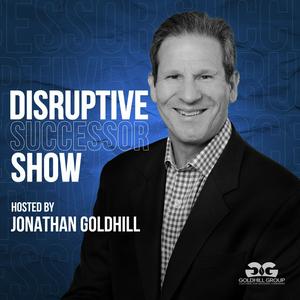
Obtenha o aplicativo gratuito radio.net
- Guardar rádios e podcasts favoritos
- Transmissão via Wi-Fi ou Bluetooth
- Carplay & Android Audo compatìvel
- E ainda mais funções
Obtenha o aplicativo gratuito radio.net
- Guardar rádios e podcasts favoritos
- Transmissão via Wi-Fi ou Bluetooth
- Carplay & Android Audo compatìvel
- E ainda mais funções


Disruptive Successor Podcast
baixe o aplicativo,
ouça.
